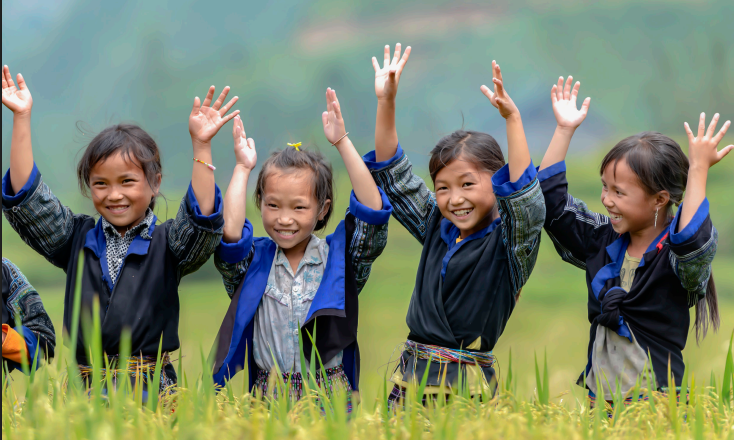Covid Contained ≠ Resilience Sustained: Vietnam’s Lessons Learned
By Ellen Hickman - MKE Survey Researcher
22 April 2025
Vietnam has been well-known for its quick and robust response to Covid-19 – but nevertheless there were long-term aspects of the overall response that failed and need to be understood for future crisis responses.
In the coastal Southeast Asian country, many Vietnamese families’ health, social, and educational progress remained resilient in the face of Covid-19 challenges. Yet, there were also a number of families who were increasingly vulnerable to the disruption in access to their regular resources and services.
Understanding which communities received protections and in what ways was the first key to unlocking inclusive and sustainable crisis responses. UNICEF Vietnam and SPRI Global partnered with Mekong Economics (MKE) to address the three (3) questions:
Covid-19 Impact. What are the socio-economic impacts of Covid-19 on children, their families, and vulnerable groups?
Families’ Coping Methods. How did children and families cope with the impact of the pandemic and policy response measures, including formal support, resources, and social capital received?
Policy Recommendations: Short, Medium & Long Term. What are the policy recommendations for mitigating the socio-economic impacts of Covid-19 and other crises on children and their families in the short, medium, and long terms?
In order to identify Covid-19’s impact, how families coped, and future policy recommendations, the qualitative fieldwork (eg. focus group discussions & key informant interviews, etc) took place in the four cities of Vietnam: Hanoi, Ho Chi Minh City, Danang, and Bac Giang; in a year-long project following the pandemic (October 2021 - July 2022).
In partnership with SPRI Global, the completed UNICEF report illustrated the following story in Vietnam:
1. The global pandemic’s negative economic effects held further repercussions on the financial, public health, and educational well-being for Vietnamese families. In order to guard against Covid-19’s spread, Vietnam’s containment measures consequently affected livelihoods. Financial consequences included job losses, reduced wages, and business closures (especially in services and manufacturing sectors).
This economic slowdown led to increased child poverty in several dimensions; including nutritional diet, prenatal care, school closures, and online learning access – with significant disparities based on a child’s region, ethnicity, and household wealth.
2. Families employed various coping mechanisms to manage the economic strain caused by the pandemic. Many families reduced food and non-food consumption, took on debt, or relied on savings. Additionally, households engaged in growing food for self-consumption and sought financial help from friends and family. Despite governmental social protection efforts (financial support and fee exemptions) awareness and access to these programs were limited, and left many families without adequate assistance.
3. Policy Recommendations. Drawing from Vietnam’s success and struggles in Covid-19 response, UNICEF proposed three (3) crisis policy recommendations for the future.
Short-Term: Make the procedures easier in accessing and receiving financial and health support. Examples include simplifying the application process to ensure families can access available support, provide emergency universal transfers to offer immediate financial relief, and increase mobile or door-to-door health services to maintain health care usage during crises.
Medium-Term: Incorporate mental health curriculum, low-tech remote learning services, and regular teacher training in education systems. These solutions destigmatize mental health help, provide remedial help to disadvantaged children via online platforms, and update educators on new crisis-teaching strategies.
Long-Term: Invest in gender and life-cycle programming, scale-up child protection campaigns, and build public goods in favor of public health outcomes. In the future, social protection systems like safe drinking water and handwashing infrastructure will improve general public health, as well as gender and age-based (children and elderly) vulnerabilities in crises.
Crisis research, such as that from UNICEF, can learn just as much from Vietnam’s gaps as from its success story. These insights highlight the need for stronger, more inclusive policies to support vulnerable communities in times of crisis. To explore UNICEF’s findings in detail, please visit the UNICEF project webpage for full reports and policy briefs.



